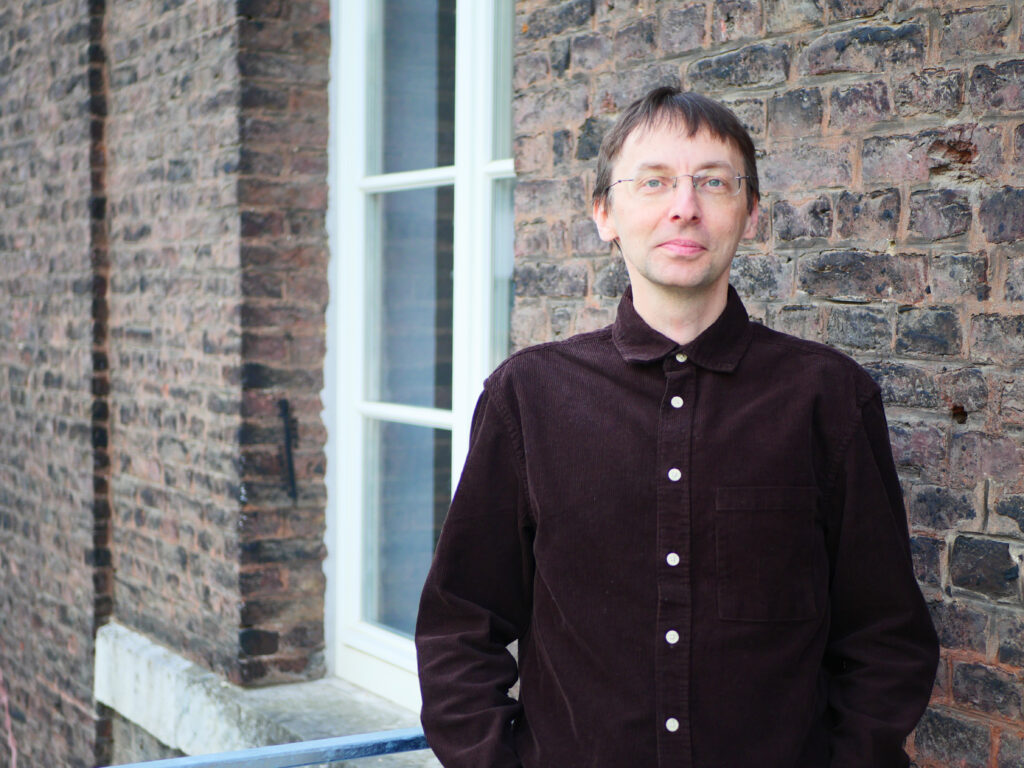c:o/re Junior Fellow 10/23 − 09/24

Nikita Braguinski studies the implications of technology for musicology and music. After studying musicology at University of Cologne he wrote his PhD thesis in media studies at Humboldt University of Berlin, working on a topic that combined musical and technical perspectives (the generation of music in early video games). In his postdoctoral work he has expanded the temporal focus of his study to include both pre-digital technologies and the most recent applications of machine learning. He was postdoctoral fellow of the department of music at Harvard University, postdoctoral researcher at Humboldt University, and visiting scholar at University of Cambridge. His work was supported by grants from DAAD, Volkswagen Foundation, and ZiF institute for advanced study at the University of Bielefeld, where he co-convened a research group on the role of technology in the future of musicology. His book “Mathematical Music. From Antiquity to Music AI” was recently translated into Korean.
Life-Like Artificial Music: Understanding the Impact of AI on Musical Thinking
For centuries, the rules of musical theory have structured musical practice. AI based on machine learning, however, makes it possible for the first time to create “Life-Like” music that only sounds like it is based on such rules. In reality, AI music is not the result of an algorithmic implementation of known, explicitly stated rules of human music. Instead, it is based on a non-human-readable representation of abstract features, derived from music that was created by composers trained in musical theory – not from theory itself.
A possibly even bigger challenge to human musical theory is the ability of modern machine learning systems to work directly with sound, bypassing the level of musical notation. Musical theory, as it was known for centuries, works with notation, even if it is well known among musicians that many crucial aspects of music such as timbre are not adequately represented by it. Recent projects in direct creation of sound demonstrate the ability of today’s AI technology to capture not only the notation-based structures in music, but also the subtleties of performance that cannot be transmitted by notation alone.
While other areas of musical AI have received scholarly attention, notably the question of artistic practice and the topic of music recommendation by online streaming services, the impact on musical theory continues to constitute a serious gap in our knowledge.
This project will discuss challenges posed to human musical theory by recent advances in machine learning.
Publications (selection)
Braguinski, Nikita. AI Demonstrations as Phantasmagorias of the Early 21st Century. In Jahrbuch des Staatlichen Instituts für Musikforschung. (In print)
Braguinski, Nikita. The Upcoming Change in Human Musical Thinking. What Does a Music Professional Do in the Age of AI? In: Künstliche Intelligenz – intelligente Kunst? Mensch-Maschine-Interaktion und kreative Praxis. TU Braunschweig (In print)
Braguinski, Nikita. 2022. Mathematical Music: From Antiquity to Music AI. Routledge: London/New York. https://routledge.pub/Mathematical-Music
Braguinski, Nikita. 2019. “428 Millions Of Quadrilles For 5s. 6d.”: John Clinton’s Combinatorial Music Machine. In 19th-Century Music 43(2): 86-98.
Braguinski, Nikita. 2018. Random. Die Archäologie der elektronischen Spielzeugklänge. Projekt Verlag: Bochum.

